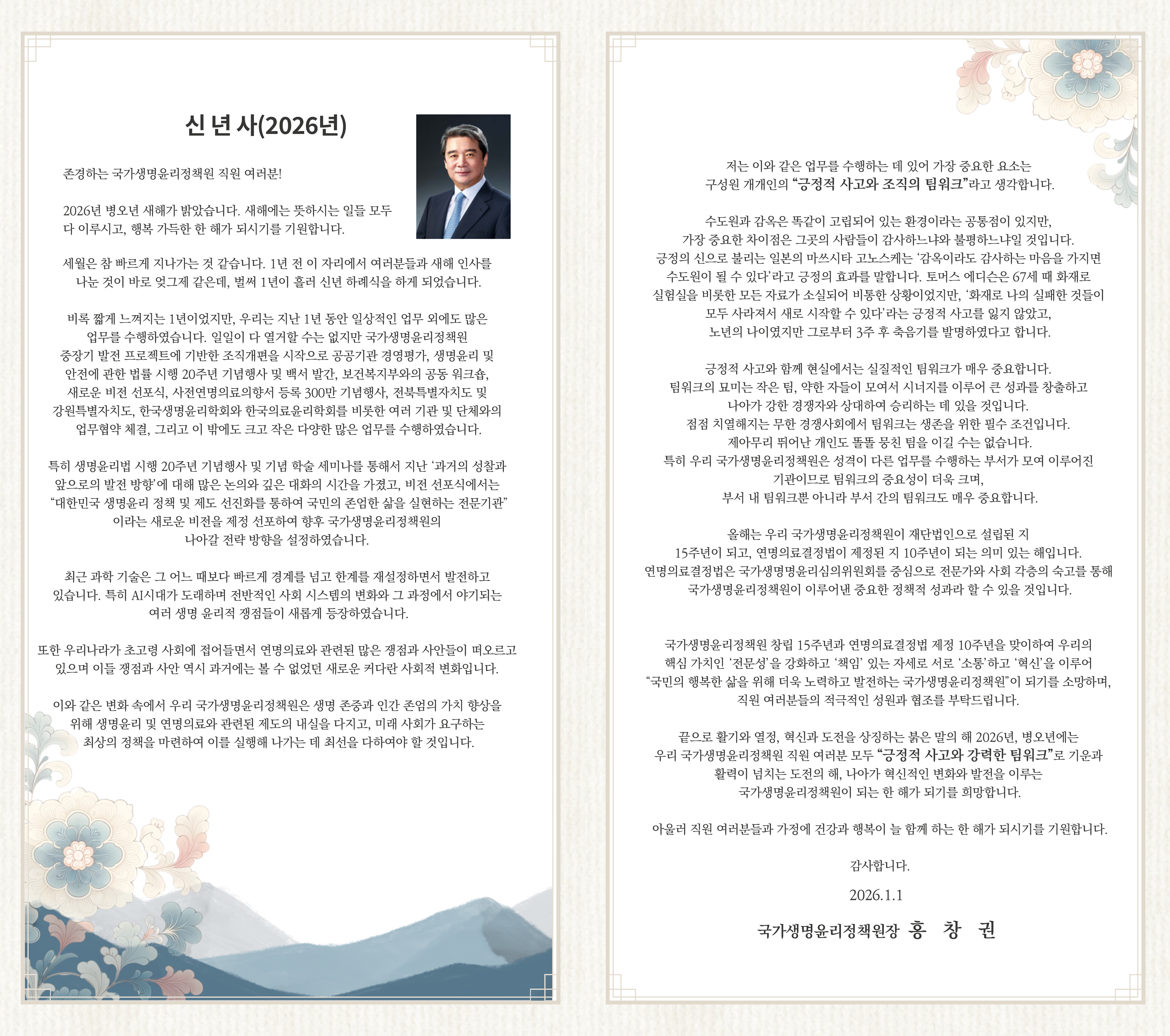A Study on the Legal and Ethical Issues of Uterus Transplantation
이 발간물은 한국생명윤리학회에서 발행하는 학술지 「생명윤리」 제23권 제1호에 게재된 논문("자궁이식에 관한 법적, 윤리적 쟁점 연구")을 번역한 것입니다.
This paper is a translation of an article published in Volume 23, Number 1 of 『J Korean Bioethics Assoc』.
A Study on the Legal and Ethical Issues of Uterus Transplantation
Seunghyun Cha, Bomyee Lee, Kang-Mi Lee, Woo-Hwi Jeon, Sujin Baik
Abstract
The first uterus transplant for humans was attempted in Saudi Arabia in 2000, but it failed. In 2014, a 30-year-old woman in Sweden with Mayer-Rokitansky-Küster-Hauser (MRKH) syndrome who was born without a womb gave birth to a baby after receiving a uterus transplant from her mother. Since then, many studies have been conducted on uterine transplants. The uterus is similar to the hands, arms, and legs in terms of being non-vital, but it has a special function of pregnancy and childbirth, making it difficult to see the success of transplantation as a stable “engraftment” of the uterus and aims to achieve healthy childbirth with the transplanted uterus. However, it is questionable whether uterus transplantation can guarantee the health of a child born this way. Korea’s legal system does not stipulate that the uterus is a transplantable organ. However, symposiums related to uterus transplantation were held in Korea in 2020 and 2021, and the possibility of uterus transplantation is being discussed. In nearby Japan, a report by the Japanese Medical Association on uterus transplantation ethics was prepared for a clinical study plan submitted by a research team at Keio University, and a clinical study on uterus transplantation was approved in 2021. However, since the uterus is bound to be limited to a specific gender, social consideration must precede the establishment of criteria for selecting donors in the law. In addition, recipients are also different from the medical indications for general organ transplants, so it is necessary to closely review the selection of recipients for donation and receipt. Although uterus transplantation is still being researched with a small number of specialized medical staff and limited facilities, ethical standards must also be considered for proper research to proceed. The ethical criteria to be considered in uterus transplantation differ from those required in general clinical studies because transplantation studies and procedures for pregnancy and childbirth are performed together. Therefore, in this study, the current status and characteristics of uterus transplantation will be examined, and legal and ethical issues will be reviewed for uterus transplantation as a clinical study and medical procedure. In addition, we would like to propose appropriate management measures, such as legitimate standards for conducting ethical clinical studies and monitoring required to secure safety and effectiveness.
- 첨부파일
- PDF A Study on the Legal and Ethical Issues of Uterus Transplantation.pdf (451.4KB / 다운로드 699)
